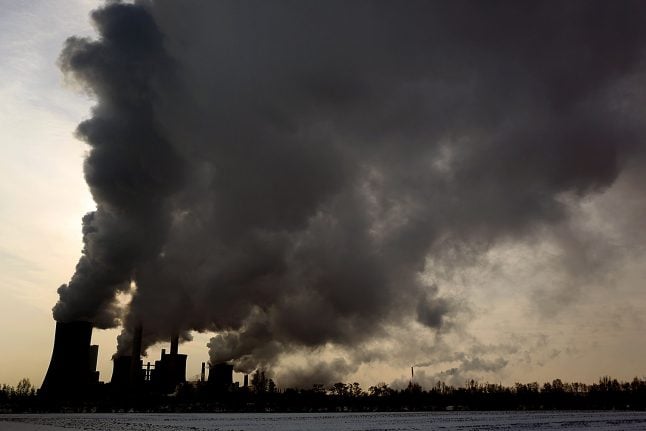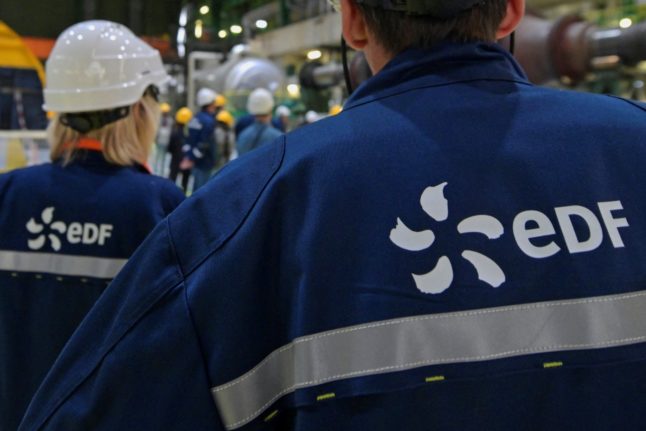A majority of Germans support an immediate end to coal-generated electricity, which is necessary for the country to meet its 2030 climate targets – however critics have warned against a rushed transition.
While the negotiations are expected to be extensive, there are indications that the meeting may result in the end of coal use in Germany.
It is set to plan the country’s exit from coal power, as well as support funding and subsidies. The final report is expected to include support for coal workers and coal companies, as well as investment for regions which have been historically dependent on the coal industry.
A detailed outline for how the electricity industry can make the transition is also expected to be drawn up.
Increasingly against coal use
An ARD Morgen Magazine poll found that just under 60 percent of voters were in favour of an immediate phase out of energy generation using brown coal. Just 36 percent preferred that the phaseout be delayed to prevent supply shortages and job losses.
The results were not uniform, however. The states of Brandenburg, Saxony and Saxony-Anhalt, where jobs are more likely to be affected by the early exit, supported delaying it. Just one third of respondents (34 percent) supported an immediate exit, with 61 percent opposed.
In December, Germany already closed its last black coal mining – which had been a staple for jobs in the Ruhr region for over two decades.
Environmental organizations and political welcomed the meeting as an opportunity to leave coal-powered energy generation behind for good. The coal exit is required if Germany is to meet its 2030 international emissions targets.
No longer a 'safe or efficient' source of electricity
Greens chairman Annalena Baerbock criticised the state’s support of coal-powered energy, saying it was no longer a safe, necessary or efficient source of electricity.
“We must now decide whether Germany is willing to prioritise climate protection. The climate target of 2030 must stand. Otherwise we will not be able to prevent a climate crisis” Ms Baerbock told the Rheinische Post.
The ‘Fridays For Future’ movement planned a rally outside the Ministry for the Economy during the Coal Commission meeting at midday, encouraging students to skip school and attend.
Luisa Neubauer, a spokesperson for the organization, said a quick exit from coal power was imperative in reducing the risks associated with climate change.
SEE ALSO: Thousands march in Germany calling for an end to coal power
“We demand that politicians finally take the climate crisis seriously and preserve our future,” Ms Neubaeur told DPA.
Others have been cautiously supportive, arguing against a rushed exit without ensuring that contingencies are in place.
Ernst Ulrich von Weizsäcker, the Honorary President of the Club of Rome NGO, said that any exits from coal power must be accompanied by stipends or other support for poorer families who would be hit hardest by the moves.
“Otherwise we will have the same yellow vest demonstrations here (as in France), which will not get us anywhere” he said.
'A moral example'
Mr von Weizsäcker said reducing reliance on coal was not just important for Germany, but to set a “moral” example for the world as a whole – particularly in other poorer countries where coal continues to be by far the primary energy source.
“Otherwise the South Africans and the Colombians will be able to say that even the rich Germans are doing nothing” he said.
Representatives of the Germany energy industry have criticised the potential withdrawal, arguing it will lead to increases price for consumers.
Utz Tillmann of the German Chemical Industry Association said the withdrawal should be delayed as the energy industry was already struggling to cope after the withdrawal from nuclear power.
“We expect the price to rise significantly if the coal power goes out” Tillmann told the Augsburger Allgemeine.
“An accelerated coal phase out after the nuclear energy exit is the second mammoth task for German energy policymakers within a few years.”
p.p1 {margin: 0.0px 0.0px 0.0px 0.0px; font: 12.0px Helvetica}
p.p2 {margin: 0.0px 0.0px 0.0px 0.0px; font: 12.0px Helvetica; min-height: 14.0px}



 Please whitelist us to continue reading.
Please whitelist us to continue reading.
Member comments